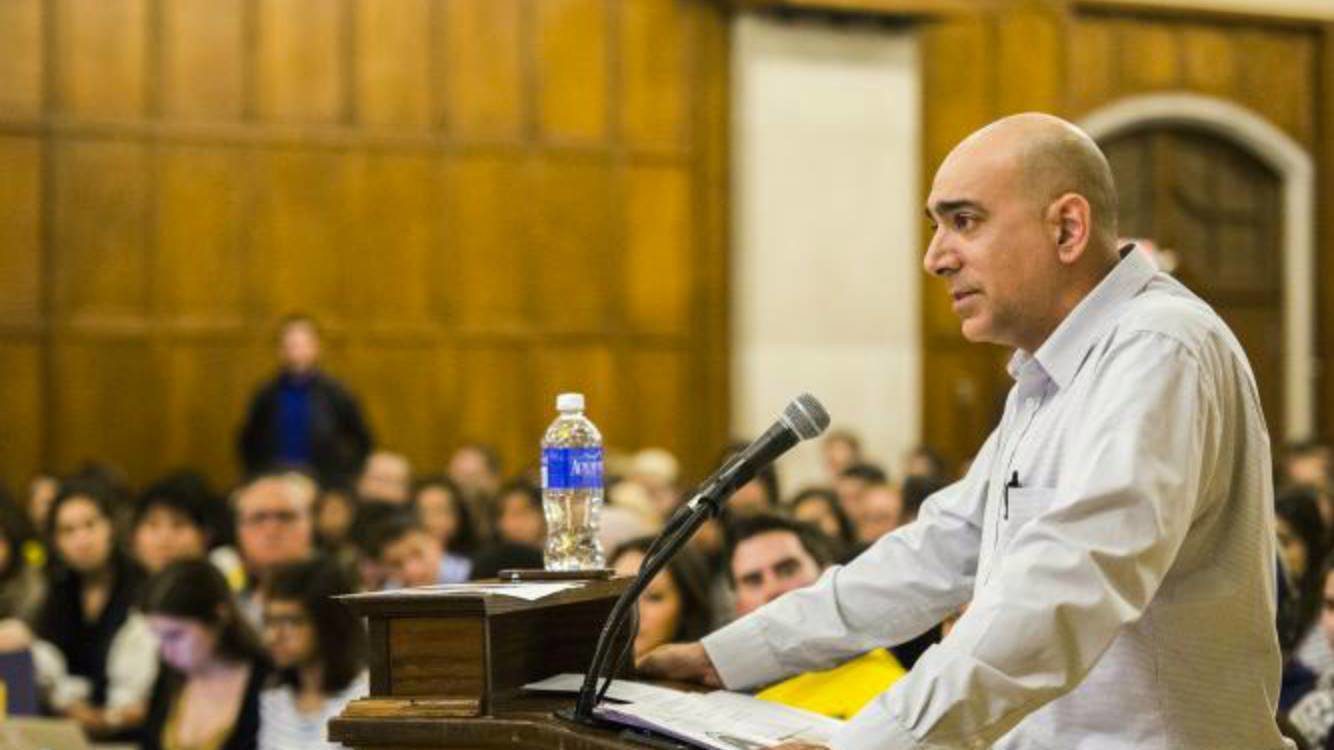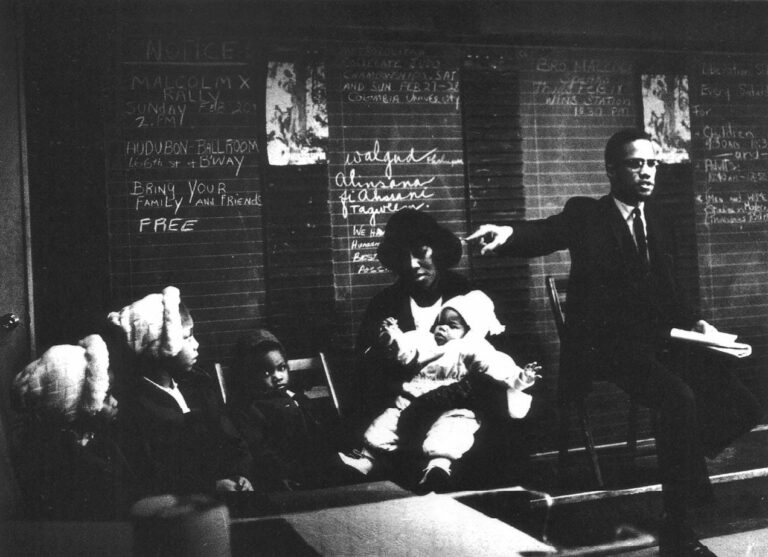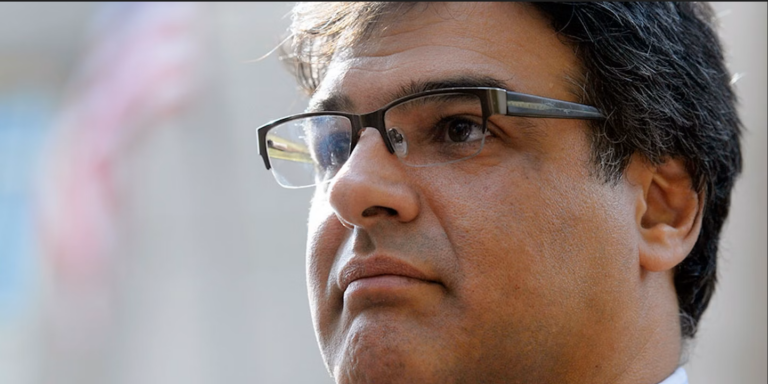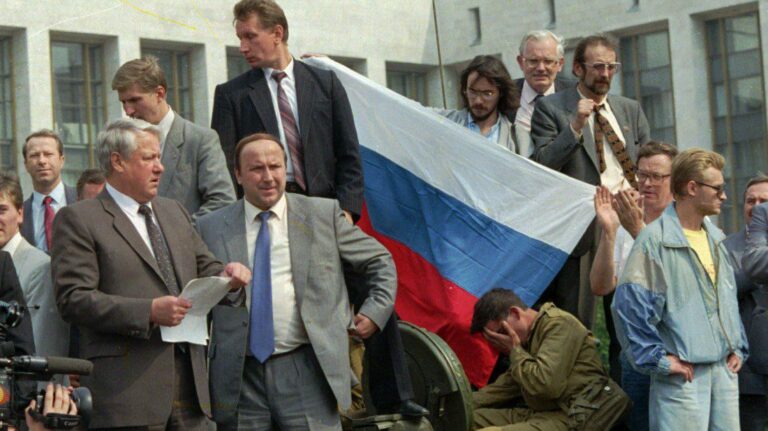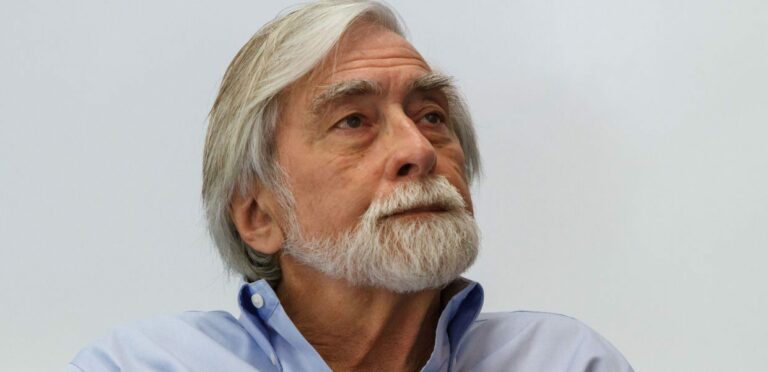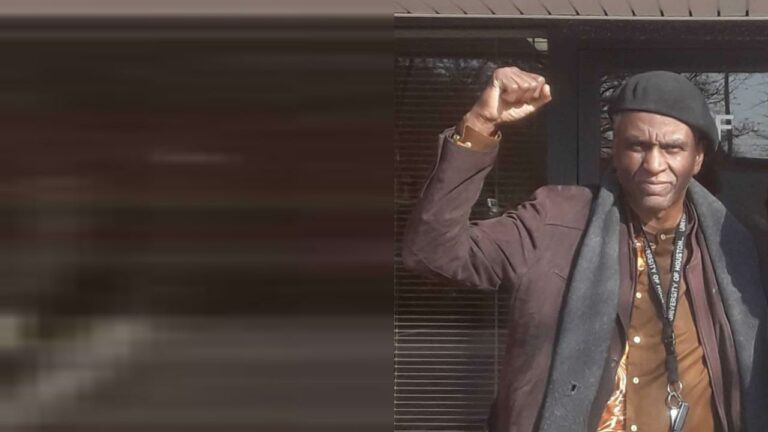Justice Requires an End to Israeli Jewish Supremacy Over Palestinians – Ali Abunimah on Reality Asserts Itself (5/5)
On Reality Asserts Itself, Mr. Abunimah says that justice in Palestine does not require Israeli Jews giving up any legitimate rights, but they must give up the “right” to supremacy.
This is an episode of Reality Asserts Itself, produced May 19, 2014.
STORY TRANSCRIPT
PAUL JAY, SENIOR EDITOR, TRNN: Welcome back to The Real News Network. I’m Paul Jay. And welcome back to Reality Asserts Itself with Ali Abunimah. He is the founder and director of Electronic Intifada. He joins us again in the studio.
Thanks for joining us.
ALI ABUNIMAH, COFOUNDER, ELECTRONIC INTIFADA: Thank you.
JAY: So, one more time, Ali’s recent book is The Battle for Justice in Palestine. In 2006 he wrote One Country: A Bold Proposal to End the Israeli-Palestinian Impasse. And that’s kind of where we left off in the last segment. We were talking about an educated hope. So what, in your eyes, does an educated hope look like?
ABUNIMAH: Well, I speak in large part from where I am and where I feel like I can make a difference. And I think that there is a transformation in how this issue is seen and talked about, in the United States in particular, but around the world. And I think in large part that’s been due to the boycott, divestment, and sanctions movement. And there’s a kind of a positive feedback loop, because the boycott, divestment, and sanctions movement began in Palestine, and it was initiated by Palestinians, but I think as Palestinians see that people are responding to it all over the world, in a sense many more Palestinians are getting involved and seeing this as a meaningful and viable way to make their case internationally and to transform the kind of latent support that the Palestinian struggle has always had into actual mobilizations that begin to shift the balance of power and to create the conditions for a just outcome. And I think that–you know, I think that the change we’ve seen in just the past two or three years is only going to pick up pace.
JAY: A just outcome can mean a couple–many different things, in a sense. Given the real politics of where things are in the Middle East, where Israeli state is, and (which is not out of the question) we could be looking at a Prime Minister Lieberman, which is the–I mean, not that Netanyahu wasn’t the far right, but Lieberman’s even more overt about it than Netanyahu is–what does a just outcome look like that might be achievable within some kind of foreseeable historical face?
ABUNIMAH: You know, we can only think in terms of our experiences and what we can see. And so, again, returning to South Africa–and it’s not to say that, you know, it’s going to follow the same script, but there we also had among whites a move to the right and a move to the extremes, you know, with groups like the Afrikaner Resistance Movement of Eugène Terre’Blanche vowing to fight to the death and the sort of the circling of the wagons. And I think we’re very much seeing that in Israel.
But there’s also, I think, an awakening in Israel. There are–you know, they may be small in numbers, but these are voices that should not be ignored, groups like Anarchists Against the Wall and Boycott from Within, and even, you know, some unlikely mainstream figures who are saying, you know, this is a dead end.
JAY: Well, former heads of Israeli intelligence agencies are–many of them have come out and said this.
ABUNIMAH: Right. So I think that the power of what we can do–you know, what we can do is change the equation, because for Israel up till now, and still, up to today, Israel can rely on impunity from the United States. I mean, just the other day, the UN Human Rights Council voted 46 to 1 on a number of resolutions condemning Israel’s settlements, its violations of Palestinian human rights, torture. The 1 was the United States. You know. And the European governments are still very, very timid about criticizing Israel. So we can’t rely on governments.
But where we can change the equation is to create this South Africa-like isolation of Israel.
And, again, people say, well, why single Israel out? Why aren’t you boycotting, you know, this country or that country?
JAY: United States.
ABUNIMAH: Well, the fact is there is no country, like, that, you know, Israel’s abuses, Israel’s apartheid, as we should call it, is sponsored by the United States and Europe. And they have uniquely singled Israel out for impunity. And Palestinians themselves have called for solidarity, solidarity in the cause of a rights-based, a universal rights-based movement, an international law based movement that is not exclusive of anyone.
What I argue in the book is that fully respecting Palestinian rights does not interfere with any legitimate rights of Israeli Jews. The only thing it interferes with is a claim that Israeli Jews have a right to special privilege, to supremacy over Palestinians. So I’m very hopeful that the kind of transformations that are underway in South Africa, with all that we discussed and all that I discuss in the book about the economic gulf that persists, and that is underway in Northern Ireland can provide signposts–not necessarily a road map, but signposts that radical transformation is [incompr.]
I’ll tell you this, Paul. I’ve been to Northern Ireland a few times, and, you know, you can look at the situation and you can say, there is so much that is still to be done. But one thing that strikes me is that there is a generation of children now that is almost in high school that has no memory of the civil war and of the violence that devastated the lives of people and communities for more than 30 years in Northern Ireland. And for those of us who, you know, have children or grandchildren or nieces and nephews, you know that one minute they’re born, and the next minute they’re, you know, in high school or they’re, hopefully, going to college. It goes by in a flash. And so even to have a generation of children that has no recollection, no memory, no experience of that kind of violence and bloodshed, is an incredible foundation for a better future. And if we can even get to that point for Palestinian children and for Israeli children, then I really feel like there’s no limit to what can be achieved.
JAY: Now, you live in Chicago. You’ve lived in Chicago for the last 20 years. You’ve lived in the United States for longer than that. You’ve, I’m sure, spoken many times where many Jews have been in your audience, and maybe you’ve addressed even various Jews that have invited you. Jewish Americans could play a role in this changing landscape. I mean, it certainly–if many or even a majority of Jewish Americans were to come out against more–. If Jewish Americans were–many more would come out vociferously against Israeli policy, it could have some impact on U.S. policy. What’s your take now? What do you find amongst the American Jewish community?
ABUNIMAH: Well, my book is called The Battle for Justice in Palestine, and a large part of that battle, I argue, is being waged in the United States. And it’s also being waged among American Jews. And, you know, I’m not the first to point out that it is in large part a generational battle. And young American Jews first and foremost see themselves as Americans who identify with progressive and liberal and inclusive values. And they are, you know, overwhelmingly progressive. And they are active already. I mean, it’s amazing when I go around the country and I meet Students for Justice in Palestine and similar groups all over the country. You cannot stereotype these groups. The diversity is incredible. And American Jewish students are absolutely a part of that mix and a very essential part of it. And whether people identify their activism as, you know, doing it as an American Jew or otherwise, they’re involved. You also have groups like Jewish Voice for Peace and others.
And I don’t think that the legacy communal organizations like the ADL and the American Jewish Committee that have made Israel advocacy really their main activity can really claim legitimately to speak anymore for some kind of monolithic community. The American Jewish community is as diverse as the rest of the country, in my experience, and there’s no more resistance there to calls for justice and equality, in my experience, than there is in other parts of the country. I mean, you can go and talk to Christian Zionists, and they will be much more against what I am saying than many American Jews.
JAY: My experience is I think most American Jews don’t get not just the reality of the occupation of the West Bank and Gaza, which I think they actually probably have a better sense of; I don’t think they get the level of racism and racial discrimination in Israel. They don’t get how much this is not–you know, you hear this argument about, you know, everyone has equal rights in Israel. Anyone that’s actually looked at it knows it’s not true. But I don’t think people get the extent of it.
ABUNIMAH: Well, I think that’s why for some people, you know, Max Blumenthal’s book Goliath was such a threat, because that book gets at that racism. And if you read it and if you take it for what it is, which is an account of several years in that place, you cannot hide behind the comforting fiction that the racism is, you know, marginal, that there’s a few extremists, but the vast majority of Israelis, you know, support all these great things that we identify with. You have to reckon with the racism up front.
And what I tried to do in my book is to really go through the arguments in a logical way. This is what it means to claim that Israel has a right to exist as a Jewish state. This is the cost it imposes on Palestinians and others. Be clear about that cost and ask whether ethically and morally you’re willing to keep paying it. And I think that more and more American Jews, just like others, are looking at these things in the light of day and saying, we’re not willing to pay this cost anymore.
JAY: Okay. The book is The Battle for Justice in Palestine. Don’t forget you can follow us at @therealnews on Twitter and look for us on Facebook.
Thanks very much for joining us.
ABUNIMAH: My pleasure. Thank you.
JAY: And I think we’ll do this many more times in the future.
ABUNIMAH: I hope so. I hope so.
JAY: And thank you for joining us on The Real News Network and Reality Asserts Itself.
END
Podcast: Play in new window | Download
